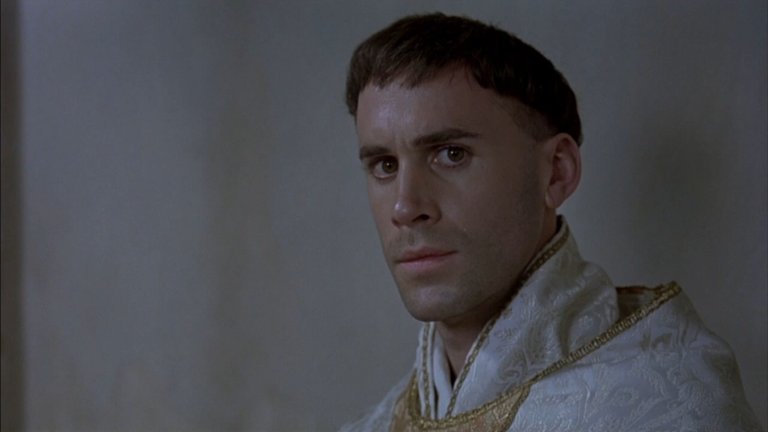Retro Film Review: Luther (2003)

Social conservatives often lament the absence of explicit religious themes in contemporary cinema. This could be attributed to the fact that many of these films have rather limited appeal - by fully embracing one religion, they risk alienating viewers who are atheists or hold different religious beliefs. A prime example is Luther, a 2003 German biopic directed by Eric Till, a film that would struggle to leave a lasting impact on audiences in predominantly Catholic countries.
The film delves into the life of one of the most significant figures in European history. It commences in 1507 Germany, where a young law student named Martin Luther (portrayed by Joseph Fiennes) decides to pursue priesthood. Following his ordination, he becomes an Augustinian monk and embarks on a pilgrimage to Rome. There, he is appalled by the corruption and sale of indulgences - documents that offer sinners and their kin reprieve from God's wrath in exchange for funding the Catholic Church. Luther perceives this as a betrayal of Christian principles and on October 31st, 1517, he nails his renowned 95 Theses to the doors of Wittenberg church. Pope Leo X (played by Uwe Ochsenknecht) attempts to coerce Luther into recanting, but it soon becomes evident that the Catholic Church is unable to swiftly silence dissenters challenging its religious authority. Luther, whose ideas gain widespread traction thanks to the recently invented printing press, refuses to submit to papal supremacy. With support from Saxon prince Frederick the Wise (portrayed by Peter Ustinov), Luther finds political shelter, laying the groundwork for what would evolve into the Protestant Reformation.
The creators of Luther faced the daunting challenge of not only addressing intricate theological matters but also situating them within their historical context. In the first half of the film, Eric Till adeptly navigates this task. Joseph Fiennes delivers a compelling performance as a young monk propelled by personal struggles, unwavering religious beliefs, and profound indignation towards injustices and corruption. Peter Ustinov shines in one of his final roles, while Bruno Ganz delivers a poignant portrayal as Luther's confidant and mentor Johann von Staupitz - a character distinct from his role in Downfall. The attention to detail in costumes and production design successfully transports viewers to early 16th Century Germany despite budget constraints. Even minor historical inaccuracies (such as the Pope's concerns about Turks threatening Vienna years before it occurred) can be overlooked.
Challenges arise for Luther in its second half when it becomes evident that the film received partial funding from Lutheran groups. The script by Cammille Thomasson and Bart Gavigan now grapples with portraying Luther as a leader of a potent movement rather than a courageous solitary dissenter. The narrative becomes less intricate, which is unsurprising given Luther's controversial involvement in the German Peasant's War and his evolving anti-Semitic views. In the latter part, Luther transitions from a historical drama to a dry recollection of pivotal events in Luther's life, including his marriage to Katharina von Bora (played by Claire Cox).
Despite its perceived lack of objectivity, Luther emerges as a more engaging and historically accurate portrayal than recent Hollywood productions.
RATING: 5/10 (++)
(Note: Original version of the review is available here.)
Blog in Croatian https://draxblog.com
Blog in English https://draxreview.wordpress.com/
InLeo blog https://inleo.io/@drax.leo
Hiveonboard: https://hiveonboard.com?ref=drax
Rising Star game: https://www.risingstargame.com?referrer=drax
1Inch: https://1inch.exchange/#/r/0x83823d8CCB74F828148258BB4457642124b1328e
BTC donations: 1EWxiMiP6iiG9rger3NuUSd6HByaxQWafG
ETH donations: 0xB305F144323b99e6f8b1d66f5D7DE78B498C32A7
There is also Grzegorz Braun's 2017 movie ; ) (pseudo-document lets say 😂) https://vod.braunmovies.com/filmy/luter-i-rewolucja-protestancka-en/